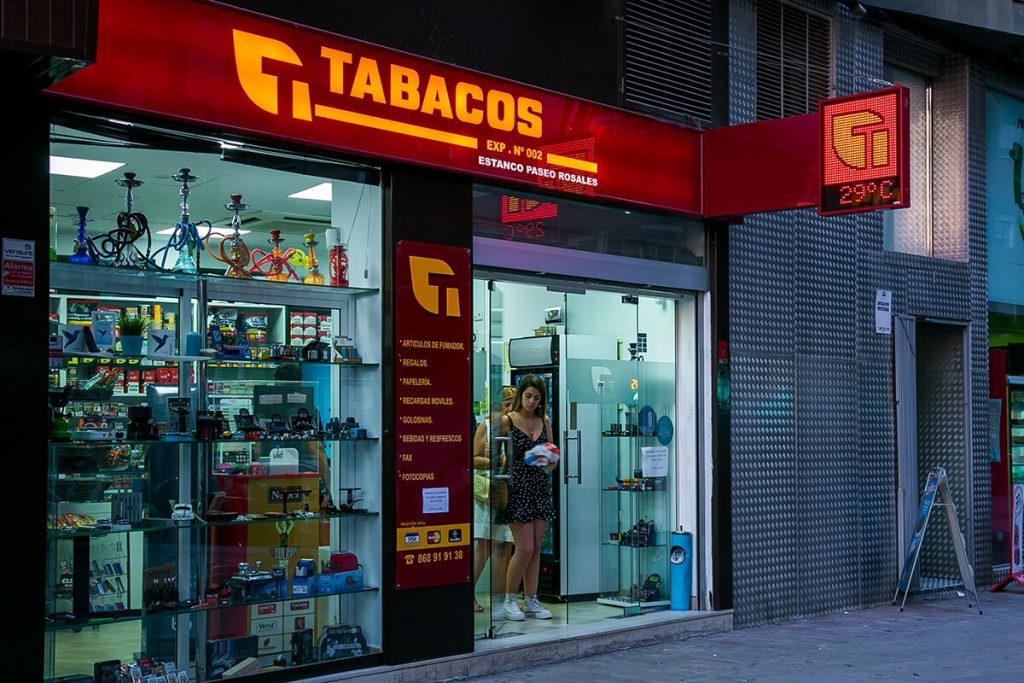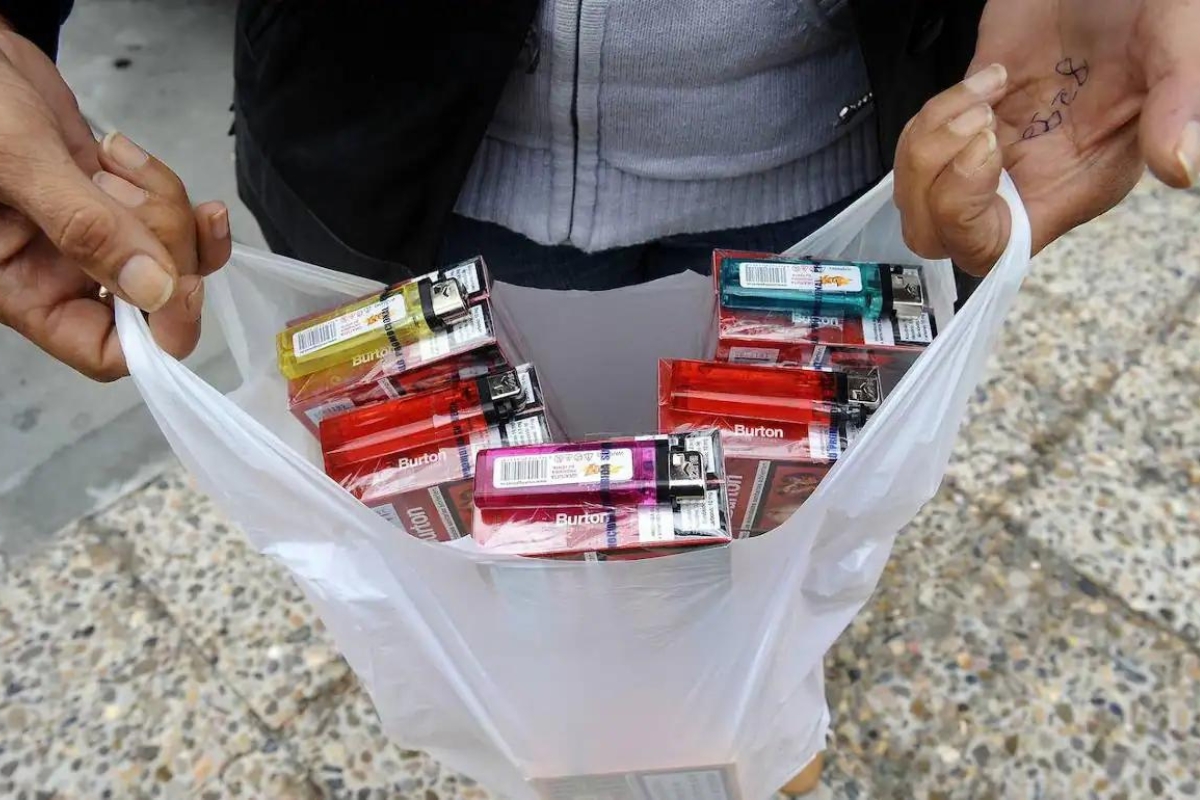
As frequent travelers and seasoned expats, we’re all too familiar with the perplexities of duty-free allowances. Whether you’re returning from a sun-drenched sojourn in Spain or bidding farewell to its cobblestone streets, understanding the nitty-gritty of tobacco allowances is crucial. It’s not merely about saving a few pounds; it’s about steering clear of legal tangles and ensuring your transition across borders is as smooth as the Andalusian breeze.
Tobacco Allowances from Spain to the UK
Allowances as per EU Regulations
When it comes to bringing tobacco from Spain to the UK, the European Union’s guidelines are quite straightforward—but with a twist. Officially, you can transport an unlimited amount of tobacco products across EU borders. However, this largesse comes with a caveat: it must be for personal use. But how does one prove the intent of personal use? The answer lies in your travel narrative, the quantity of goods, and oftentimes, your ability to persuasively articulate your personal consumption patterns to inquiring authorities.
- Personal Use Indicators:
- The type of product and quantity.
- Documentation of purchase like receipts or invoices.
- Frequency and regularity of travel.
UK Government Stipulated Allowances
In contrast, the UK government paints a clearer, albeit more restrictive picture. Once you touch down on British soil, there are precise limits to how much tobacco you can carry without inviting the Queen’s excise duty. As of my last update, the stipulated tobacco allowances stand at:
- 200 cigarettes or
- 100 cigarillos or
- 50 cigars or
- 250g of loose tobacco
It’s imperative to note that these amounts are not cumulative—you have to pick your vice. Exceed these allowances, and you might have to fork out extra pounds for duties or, worse, have your sun-kissed Spanish tobacco confiscated.
Pre and Post-Brexit Changes
The Brexit saga has left many aspects of UK-EU interaction transformed, and tobacco allowances are no exception. Pre-Brexit, travelers enjoyed more lenient allowances, courtesy of the UK’s membership in the EU. However, post-Brexit regulations have tightened the reins. It’s paramount for us, especially those who flit between the UK and Spain, to stay abreast of these changes and plan our purchases accordingly.
- Comparative Insight:
- Pre-Brexit: Larger allowances under EU membership.
- Post-Brexit: Reduced allowances as a non-EU country.
Understanding these allowances isn’t just regulatory compliance—it’s about embracing savvy travel practices. Our shared experiences as a community of expats are a testament to the significance of staying informed and adaptable, whether it’s navigating post-Brexit nuances or exploring the vibrant landscapes of Spain.
In our ongoing conversations with fellow travelers, we stress the importance of keeping these guidelines at the forefront. We do this not just to safeguard against potential legal snafus but also to uphold the trust and confidence we place in each other as informed global citizens.
By adhering to these stipulations, we demonstrate respect for the regulations that govern our transitory lifestyles. It’s through this lens of collective responsibility that we can continue to indulge in the diverse offerings of our host countries, all while maintaining the integrity of our mobile existence.
Understanding Duty-Free Allowances
Navigating the duty-free allowances when transitioning from one country to another can often feel like a daunting task. For us expats, and indeed all global travelers, getting to grips with these regulations is not just a matter of lawfulness but also of ensuring we are utilizing our allowances wisely.
What Constitutes Personal Use?
The line between personal and commercial use when it comes to tobacco products might seem blurred, but it is defined by certain criteria. Personal use includes goods intended for your use or as gifts. On the other hand, commercial use typically refers to products intended for resale, business use, or if they exceed the amount reasonable for personal consumption. To ascertain what falls under personal use, customs officials may consider:
- Quantity: There are benchmarks for what is considered reasonable for personal use.
- Frequency of travel: Regular trips with large quantities of tobacco could indicate commercial intent.
- Presence of commercial packaging: Items packaged in a way that suggests retail intent.
Procedures at Customs
When you arrive at customs, anticipation is palpable. If you’re carrying tobacco within the allowances, you can usually pass through the nothing-to-declare channel (green channel). However, if you exceed these limits, it’s essential to declare these goods in the red channel. At this point, you should be ready to:
- Present your tobacco products for inspection.
- Provide proof of purchase, like receipts, which can help establish that the goods are for personal use.
- Pay the appropriate duty and taxes if your goods exceed the personal allowance.
It’s a straightforward process, but one that demands honesty and preparation. Non-declaration of goods exceeding the allowances can result in fines or, in severe cases, legal action.
Purchasing Tobacco in Spain
The allure of Spain isn’t limited to its golden beaches and rich cultural tapestry. For tobacco enthusiasts, it’s also about the variety and availability of tobacco products that pique interest.
Popular Brands and Where to Buy
Spain offers an array of tobacco brands that cater to a spectrum of preferences. Some of the popular brands include Fortuna, Ducados, and Marlboro, each offering a distinctive taste and blend. Finding a place to purchase these brands is a breeze. From the bustling estancos, the licensed tobacco shops, to duty-free stores in airports, quality and authenticity are assured. When buying tobacco, it’s crucial to ensure you’re purchasing from reputable sources to avoid counterfeit goods.
Prices and Taxes
The cost of tobacco in Spain can be a pleasant surprise, particularly due to the lower taxes compared to other European countries. However, it’s prudent to understand that these prices are subject to change based on Spanish tax regulations. Being aware of the current taxes will give you a better understanding of the prices you’ll encounter. This knowledge ensures that you’re getting the best deal and that you’re not caught off-guard by fluctuating costs.
As part of our expat community’s commitment to sharing practical advice, we often exchange tips on the best tobacco deals and stores, ensuring that every member can enjoy Spain’s offerings responsibly and within the parameters of the law. Through these shared insights, we help each other make informed decisions, preserving the joys of our experiences in Spain without the sting of unexpected customs charges.
Also Related
In the realm of duty-free shopping, tobacco is not the only commodity that draws the vigilant eye of customs. There are allowances and restrictions pertaining to other items as well, and as part of our comprehensive travel wisdom, we must consider them too.
Alcohol Allowances
When it comes to alcohol, the rules are quite generous but, like tobacco, they are meant for personal use and not for resale. From Spain to the UK, you are allowed to bring back certain amounts without paying tax, such as:
- Beer: 42 liters
- Wine (not sparkling): 18 liters
- Spirits and other liquors over 22% alcohol: 4 liters
- Fortified wine (e.g., sherry, port), sparkling wine, and alcoholic drinks up to 22% alcohol: 9 liters
One can savor the rich Spanish wines or the strong local spirits without much hassle, provided these limits are respected.
Cash Allowances
Traveling with a significant amount of cash can often raise eyebrows at customs. In the case of the UK, if you’re carrying cash of 10,000 euros or more (or the equivalent in another currency), you must declare it. This rule applies whether you’re flying, driving, or taking a train. It’s a simple process, but a crucial one to prevent the complications of non-compliance.
Frequently Asked Questions (FAQs)
Can I combine my allowances with others?
Indeed, if you’re traveling with family or friends, each person has their own allowance. This means that collectively, you can bring in more. However, it’s important to note that this can’t be used to bring in an item that exceeds the individual allowance.
What if I exceed my allowances?
Exceeding your allowances typically means you’ll have to pay tax and duty on the excess amount. In certain cases, if the amount is significant, there could be further implications, so it’s best to stay within the limits.
How do I declare items at customs?
If you need to declare items at UK customs, you can do so by approaching the red channel or the red-point phone. There, you can speak to a customs officer and declare your goods.
Can I bring back electronic cigarettes or heated tobacco products?
Yes, e-cigarettes and heated tobacco products are subject to the same restrictions as all other tobacco products. They should be for personal use, and the same allowances apply.
Conclusion
Navigating the dos and don’ts of duty-free allowances from Spain to the UK requires a bit of homework but ensures your travels are hassle-free. Remember, while indulging in the array of products available, always keep in mind the restrictions on tobacco, alcohol, and cash. We encourage all our fellow travelers to stay informed and within these allowances to avoid any unwelcome legal inconveniences. Safe travels, and enjoy the delightful experiences that Spain has to offer!
Related Resources
For the most accurate and up-to-date information, always consult official resources. Here are a few that might be helpful:
- UK Government: Duty Free Goods
- UK Government: Declare cash if you take it between Great Britain and another country
- HM Revenue & Customs
- Travel Advice: British Consulate in Spain
By tapping into these resources, you’ll be equipping yourself with the knowledge to ensure your journey is as smooth as the fine Spanish brandy.
